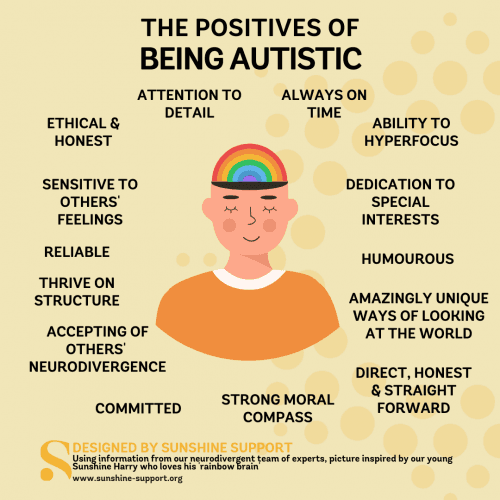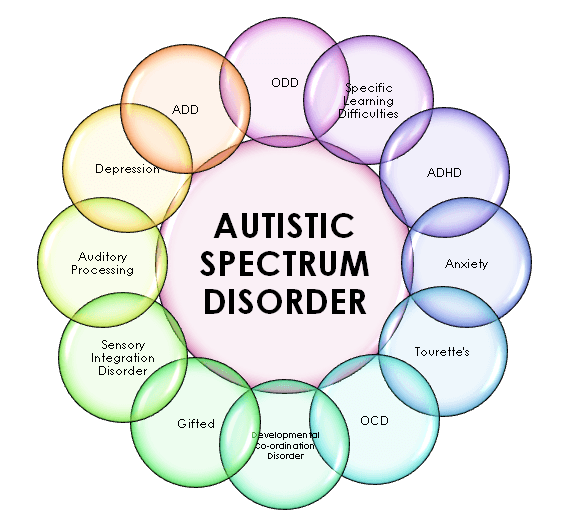
Autism is a neurodevelopmental condition that affects how a person communicates, interacts, and processes information. It exists on a spectrum, meaning each individual experiences it differently. Early diagnosis and the right support can help individuals thrive in their own unique ways.
What Is Autism?
Autism, or Autism Spectrum Disorder (ASD), impacts social skills, speech, nonverbal communication, and behavior. While some individuals require significant support, others live independently. The key is understanding and embracing neurodiversity, ensuring inclusivity for all.
Signs and Symptoms of Autism
Recognizing autism early can make a big difference. Common signs include difficulty with social interactions, repetitive behaviors, intense focus on specific interests, and sensory sensitivities. Some individuals may struggle with verbal communication, while others may have advanced language skills but find social situations challenging.
Causes and Risk Factors
Although the exact cause of autism remains unknown, research suggests a combination of genetic and environmental factors. Family history, prenatal exposure to toxins, and certain genetic mutations may increase the likelihood of developing autism.
Diagnosing Autism
Doctors use behavioral observations, parent interviews, and developmental screenings to diagnose autism. Early intervention plays a crucial role in helping children develop essential skills. Speech therapy, occupational therapy, and behavioral interventions can significantly improve quality of life.
Treatment and Support
There is no single treatment for autism, but various therapies can help. Applied Behavior Analysis (ABA), speech therapy, and sensory integration therapy are common approaches. Additionally, support groups and educational programs empower individuals and families, providing valuable resources.
The Importance of Acceptance
Society must embrace neurodiversity and foster an inclusive environment. Autism is not a disease but a different way of experiencing the world. By spreading awareness and promoting acceptance, we can ensure that individuals with autism receive the respect and opportunities they deserve.
Conclusion
Understanding autism is essential for building a more inclusive society. Early diagnosis, proper support, and acceptance can make a world of difference. By celebrating neurodiversity, we can create a world where everyone, regardless of how their brain works, has the opportunity to thrive.

Practicing the Occult with Autism: Harnessing Hyper-Fixation and Dedication
The occult is a deeply personal and transformative journey. For individuals with autism, it can be an incredibly enriching experience. With natural traits like hyper-fixation and intense dedication, autistic practitioners often thrive in the occult. These qualities allow for deep study, structured rituals, and long-term commitment to spiritual growth.
Why Autism and the Occult Work Well Together
Autism often comes with a heightened ability to focus. Many autistic individuals find comfort in structured routines and detailed knowledge. The occult provides both. Whether diving into tarot, astrology, sigil magic, or ceremonial rituals, the depth of study can be captivating.
Hyper-fixation, a common trait in autism, allows for deep learning and mastery. Many autistic people spend hours researching, practicing, and refining their spiritual practices. This dedication leads to profound insights and personal growth.
Benefits of Occult Practice for Autistic Individuals
- Deep Learning and Mastery
The occult requires study and practice. Autistic practitioners often enjoy absorbing intricate details about mystical traditions, planetary influences, or divination methods. Their ability to retain information makes them well-suited for complex occult systems. - Structured Rituals Provide Stability
Many autistic individuals find comfort in predictable routines. Rituals, spells, and ceremonial practices offer a structured way to engage with spirituality. This predictability can reduce anxiety and create a sense of order in daily life. - Heightened Sensory Awareness Enhances Practice
Many autistic people experience heightened sensory perception. This sensitivity can enhance meditation, energy work, and divination. Paying attention to subtle energy shifts, candle flames, or tarot card details becomes second nature. - Strong Dedication Leads to Mastery
Dedication is key in occult practice. Autistic individuals often display unwavering commitment to their interests. This persistence allows for deeper understanding and stronger spiritual connections over time.
Best Occult Practices for Autistic Practitioners
- Tarot and Divination: The structured symbolism of tarot decks can be fascinating and comforting.
- Astrology: The logical patterns and structured meanings of planetary movements appeal to many autistic thinkers.
- Sigil Magic: The creative and repetitive nature of sigil crafting aligns well with hyper-focused minds.
- Ceremonial Magic: Detailed rituals provide structure and a sense of stability.
- Energy Work and Meditation: Heightened sensory perception makes these practices highly effective.
Tips for Thriving in the Occult with Autism
- Follow Your Interests: Let hyper-fixation guide your studies. If a specific tradition excites you, explore it fully.
- Create Ritual Routines: Develop structured spiritual habits that bring comfort and consistency.
- Use Sensory Tools: Incorporate textures, scents, and sounds that enhance your practice.
- Document Your Journey: Keep a journal to track progress, insights, and experiences.
Final Thoughts
Autism and the occult create a powerful combination. The ability to hyper-focus, embrace structure, and commit to learning makes autistic individuals natural practitioners. By embracing their strengths, they can develop a deeply personal and fulfilling spiritual path. If you are autistic and drawn to the occult, trust your instincts and dive into the practices that resonate most with you.

